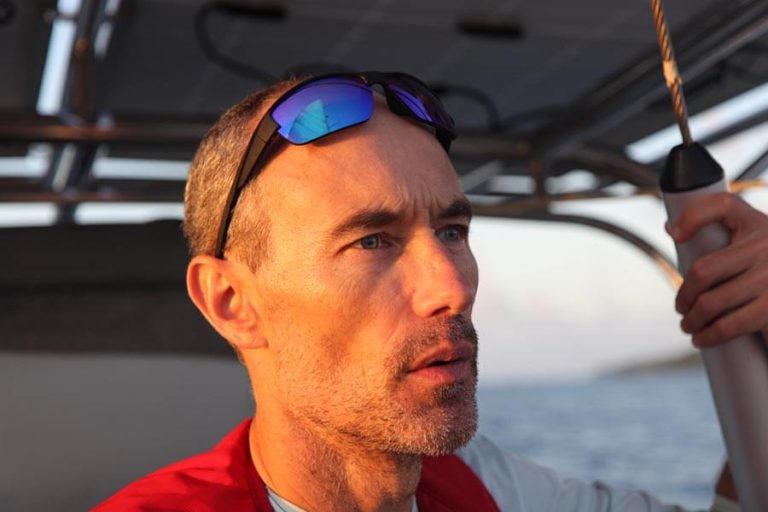
A new study indicates that human evolutionary traits, especially cultural adaptation, could hinder solving global environmental problems, such as climate change. It highlights the need for innovative global governance strategies and further research into overcoming the evolutionary challenges to environmental sustainability. Credit: SciTechDaily.com
A new study led by the University of Maine suggests that inherent aspects of human evolution could hinder our ability to tackle global environmental issues such as climate change.
Humans have come to dominate the planet with tools and systems to exploit natural resources that were refined over thousands of years through the process of cultural adaptation to the environment. University of Maine evolutionary biologist Tim Waring wanted to know how this process of cultural adaptation to the environment might influence the goal of solving global environmental problems. What he found was counterintuitive.
The project sought to understand three core questions: how human evolution has operated in the context of environmental resources, how human evolution has contributed to the multiple global environmental crises, and how global environmental limits might change the outcomes of human evolution in the future.
Waring’s team outlined their findings in a new paper published in Philosophical Transactions of the Royal Society B. Other authors of the study include Zach Wood, UMaine alumni, and Eörs Szathmáry, a professor at Eötvös Loránd University in Budapest, Hungary.
Human expansion
The study explored how human societies’ use of the environment changed over our evolutionary history. The research team investigated changes in the ecological niche of human populations, including factors such as the natural resources they used, how intensively they were used, what systems and methods emerged to use those resources, and the environmental impacts that resulted from their usage.
This effort revealed a set of common patterns. Over the last 100,000 years, human groups have progressively used more types of resources, with more intensity, at greater scales, and with greater environmental impacts. Those groups often then spread to new environments with new resources.
The global human expansion was facilitated by the process of cultural adaptation to the environment. This leads to the accumulation of adaptive cultural traits — social systems and technology to help exploit and control environmental resources such as agricultural practices, fishing methods, irrigation infrastructure, energy technology, and social systems for managing each of these.
“Human evolution is mostly driven by cultural change, which is faster than genetic evolution. That greater speed of adaptation has made it possible for humans to colonize all habitable land worldwide,” says Waring, associate professor with the UMaine Senator George J. Mitchell Center for Sustainability Solutions and the School of Economics.
Moreover, this process accelerates because of a positive feedback process: as groups get larger, they accumulate adaptive cultural traits more rapidly, which provides more resources and enables faster growth.
“For the last 100,000 years, this has been good news for our species as a whole.” Waring says, “But this expansion has depended on large amounts of available resources and space.”
Today, humans have also run out of space. We have reached the physical limits of the biosphere and laid claim to most of the resources it has to offer. Our expansion also is catching up with us. Our cultural adaptations, particularly the industrial use of fossil fuels, have created dangerous global environmental problems that jeopardize our safety and access to future resources.
Global limits
To see what these findings mean for solving global challenges like climate change, the research team looked at when and how sustainable human systems emerged in the past. Waring and his colleagues found two general patterns. First, sustainable systems tend to grow and spread only after groups have struggled or failed to maintain their resources in the first place. For example, the U.S. regulated industrial sulfur and nitrogen dioxide emissions in 1990, but only after we had determined that they caused acid rain and acidified many water bodies in the Northeast. This delayed action presents a major problem today as we threaten other global limits. For climate change, humans need to solve the problem before we cause a crash.
Second, researchers also found evidence that strong systems of environmental protection tend to address problems within existing societies, not between them. For example, managing regional water systems requires regional cooperation, regional infrastructure and technology, and these arise through regional cultural evolution. The presence of societies of the right scale is, therefore, a critical limiting factor.
Tackling the climate crisis effectively will probably require new worldwide regulatory, economic, and social systems — ones that generate greater cooperation and authority than existing systems like the Paris Agreement. To establish and operate those systems, humans need a functional social system for the planet, which we don’t have.
“One problem is that we don’t have a coordinated global society that could implement these systems,” says Waring, “We only have sub-global groups, which probably won’t suffice. But you can imagine cooperative treaties to address these shared challenges. So, that’s the easy problem.”
The other problem is much worse, Waring says. In a world filled with sub-global groups, cultural evolution among these groups will tend to solve the wrong problems, benefitting the interests of nations and corporations and delaying action on shared priorities. Cultural evolution among groups would tend to exacerbate resource competition and could lead to direct conflict between groups and even global human dieback.
“This means global challenges like climate change are much harder to solve than previously considered,” says Waring. “It’s not just that they are the hardest thing our species has ever done. They absolutely are. The bigger problem is that central features in human evolution are likely working against our ability to solve them. To solve global collective challenges we have to swim upstream.”
Looking forward
Waring and his colleagues think that their analysis can help navigate the future of human evolution on a limited Earth. Their paper is the first to propose that human evolution may oppose the emergence of collective global problems and further research is needed to develop and test this theory.
Waring’s team proposes several applied research efforts to better understand the drivers of cultural evolution and search for ways to reduce global environmental competition, given how human evolution works. For example, research is needed to document the patterns and strength of human cultural evolution in the past and present. Studies could focus on the past processes that led to the human domination of the biosphere, and on the ways cultural adaptation to the environment is occurring today.
But if the general outline proves to be correct, and human evolution tends to oppose collective solutions to global environmental problems, as the authors suggest, then some very pressing questions need to be answered. This includes whether we can use this knowledge to improve the global response to climate change.
“There is hope, of course, that humans may solve climate change. We have built cooperative governance before, although never like this: in a rush at a global scale.” Waring says.
The growth of international environmental policy provides some hope. Successful examples include the Montreal Protocol to limit ozone-depleting gasses, and the global moratorium on commercial whaling.
New efforts should include fostering more intentional, peaceful, and ethical systems of mutual self-limitation, particularly through market regulations and enforceable treaties, that bind human groups across the planet together ever more tightly into a functional unit.
But that model may not work for climate change.
“Our paper explains why and how building cooperative governance at the global scale is different, and helps researchers and policymakers be more clear-headed about how to work toward global solutions,” says Waring.
This new research could lead to a novel policy mechanism to address the climate crisis: modifying the process of adaptive change among corporations and nations may be a powerful way to address global environmental risks.
As for whether humans can continue to survive on a limited planet, Waring says “We don’t have any solutions for this idea of a long-term evolutionary trap, as we barely understand the problem.” says Waring.
“If our conclusions are even close to being correct, we need to study this much more carefully,” he says.
Reference: “Characteristic processes of human evolution caused the Anthropocene and may obstruct its global solutions” by Timothy M. Waring, Zachary T. Wood and Eörs Szathmáry, 1 January 2024, Philosophical Transactions of the Royal Society B.
DOI: 10.1098/rstb.2022.0259










Great, yet another study recommending a new global totalitarian empire, but now with Climate Eugenics. Exactly what happpened to The Royal Society?
The authors should read some of Peter Turchin’s books, e.g. “Ultrasociety: How 10,000 Years of War Made Humans the Greatest Cooperators on Earth,” before they write anything more on this subject.
We have evolved as both cooperators and competitors. Cooperation within a group allows the group to compete sucessfully against other groups. But to survive climate change and unbridled warfare, we must stop competing and just cooperate. Will this happen? Probably not for the bulk of humanity, but perhaps some small groups of lucky survivors will have the opportunity to start anew.
Hottan gets an F; the Old Man gets a D-; Ken
Ken Green and the authors of the study get A’s. The others can be ignored.
Why can’t we all get along?
Because “we” doesn’t include the “other”, and xenophobia is an evolved trait.
I’ve been banging this drum since 1961, when I took Cultural Anthropology duribg
race riots in Tallahassee.
Maybe an AT can be trained using less divisive LLM’s than TikTok and Facebook?
Fully agree with Tom, and the authors.
Anybody who hasn’t learned the various sciences required to study every aspect of what’s happening and the cumulative effects need to sit down.
Furthermore, it is not humanity as a whole.
It is the one’s implementing violence for thousands of years in order to establish dominance and feel powerful, and killing those who don’t conform to such violence that created the problem.
Literally all of history tells us this and the archeological evidence firmly supports it.
I’m not religious, but even objectively reading the various theological scriptures tells this EXACT story.
The original devotions to “Gods” were actually more scientific, from people noticing things in the natural world that guided them to make better choices in the way they went about their lives.
Unfortunately, most folks dont learn ancient history in a linear fashion and they dont take the time to objectively read through the various theologies, especially in context with ancient history, archeology, human biology, etc..
Nowadays everyone thinks having a right to their opinion makes that opinion valid.
That is not true.
At this point, given all the information & data at hand, combined with the world culture, I too foresee very few humans being left to decide the future.
Forcing people to live worse lives, limiting us as a sacrifice to their beliefs, that is violence. Force is violence. The article demands violence, against us, as devotion to their gods.
I disagree with Tom. He didn’t say much, seemingly still in school, so I didn’t reply, but best of luck to him after graduation.